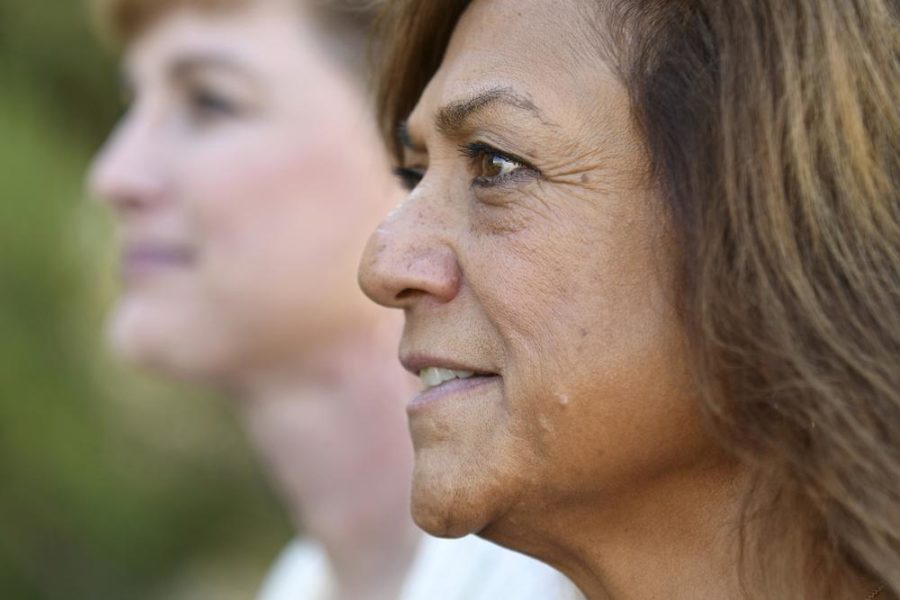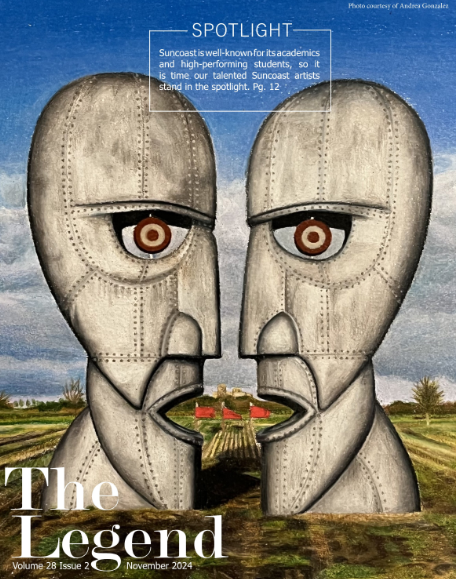Anti-Vaxx vs. Transplants
Should unvaccinated people receive transplants?
Leilani Lutali (on the right), poses with Jaimee Fougner (on the left), her kidney donor.
March 26, 2022
Following the heated debate of whether or not people should be required to receive a vaccine in light of the pandemic, many anti-vaxxers are being denied transplants. Due to anti-vaxxers’ susceptibility to more illnesses and an increased risk for them to contract Covid, the organ will be more likely to fail or be rejected from the body, thus wasting an opportunity that could have saved another’s life. This precaution not only protects the organ, but the recipients as well. Patients that have recently received a transplant are more likely to be impacted by severe illness which could lead to death.
“The entire transplant evaluation process…is about making sure patients are in the best physical, mental and social condition to endure a transplant, and then all the downstream effects of transplantation,” Olivia Kates, a Johns Hopkins infectious diseases physician explained.
The first major concern regarding patients eligible for organ donation and vaccines is that once these patients receive their organs, they will no longer be able to depend on their immune system. In order to receive a donation with the least risk possible, patients will be on a number of immunosuppressants to counteract the chance of rejection. The main reason vaccines are required is so that when patients are under the effects of these drugs, they will still be able to produce the antigens for select illnesses without having to contract the disease and create their own. However, those that are unvaccinated still refuse to take the shots because of their beliefs, despite the dire consequences.
“If I’m laying on my deathbed, and they tell me, ‘You have a kidney waiting on you if you get this shot,’ I’ll tell them, ‘I’ll see you on the other side.’” Chad Carswell claimed, a man turned down for a kidney transplant in North Carolina.
Many have similar stories to Carswell, such as D.J. Ferguson and Leilani Lutali, each having been denied approval for transplants due to their lack of the rightfully required vaccinations. D.J. Ferguson, a 31-year-old male and heart transplant candidate in Boston was removed from the waitlist due to his failure to meet the transplant criteria. His family has reported that the vaccine is “against his basic principles’ and thus they are exploring all other options as they continue treatment at Brigham and Women’s Hospital. However, for transplant patients, there are usually no other permanent options to explore. Leilani Lutali, a 56-year-old female and kidney transplant candidate in Colorado also refuses to receive the covid vaccine due to her Christian beliefs. She was against the role that fetal cells played in the research of vaccines, even if the cells are clones of the original.
“Studies have found transplant patients who contract COVID-19 may have a mortality rate of 20% or higher,” spokesman Dan Weaver said.
Increasing debate has been occurring on both sides of the argument, and has only been fueled by recent events, such as the vaccine mandate ban that Texas issued in October. However, transplant criteria has always strongly recommended that patients fulfill all requirements to be seen as eligible for a transplant, including vaccines. Due to valid health concerns for both the patient and the organ, it is best for all involved to follow the guidelines. Just as smokers and alcoholics are urged to quit in order to receive a transplant so that the organ can remain healthy and viable. Just as patients are screened to see if they are mentally and physically ready to receive a transplant. Just as they are judged for reliability on taking long term medication. One should not be forced to receive an unwanted vaccine, but they should bear in mind their hospital’s suggestions.








